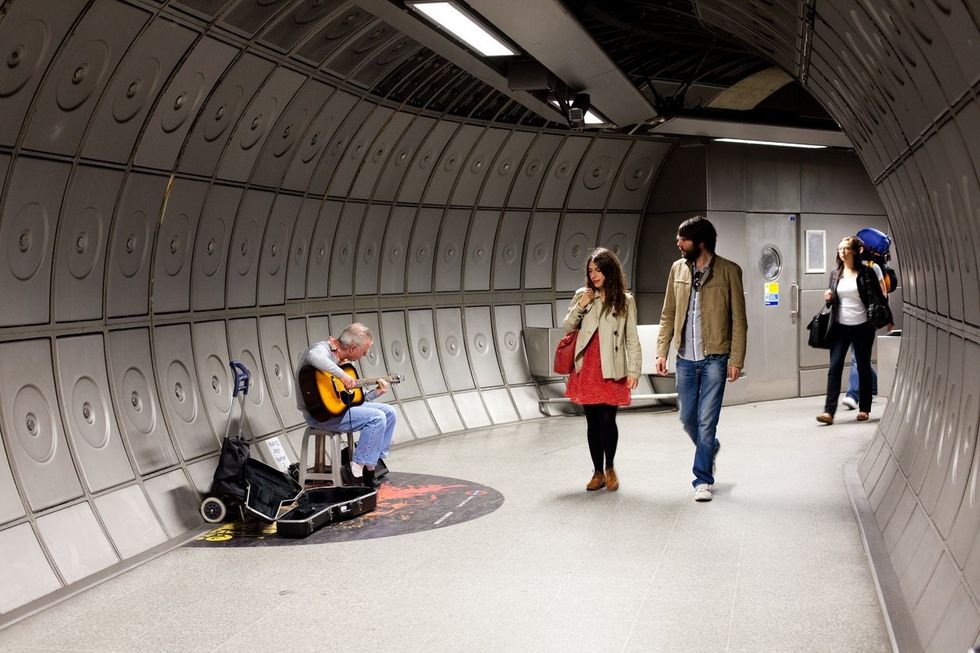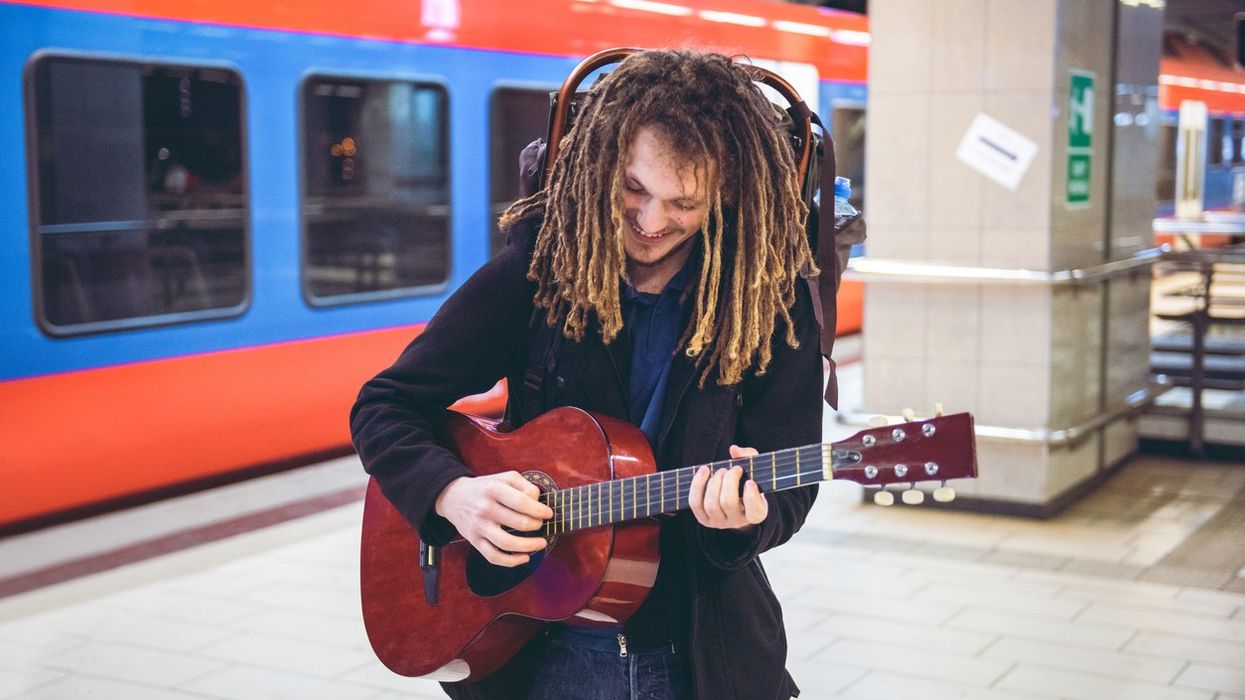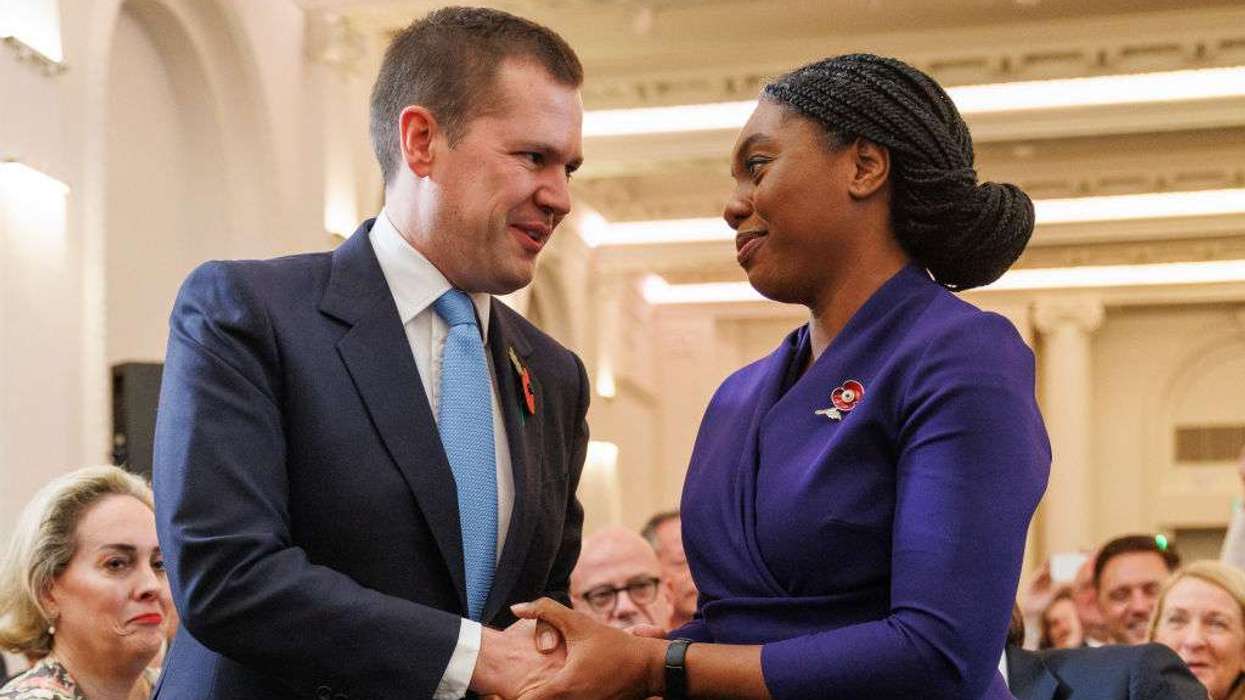Imagine you are travelling to work and see some artists preparing their musical instruments to play for you, the song which you will hum all day at work seems interesting. One such event took place in London's underground network.
In the heart of London's Southwark train station, amid the hustle and bustle of a typical morning rush, a small group of musicians found themselves in a unique position.
Unpacking their instruments and checking their music, these artists prepared for a significant opportunity – the revival of auditions for buskers within the renowned London Underground network.
The London Underground, a vital lifeline for 3.5 million daily commuters, has embarked on a mission to infuse musical vibrancy into the daily grind of city dwellers. These auditions mark the first of their kind since the pandemic, as the Underground seeks to fill 40 highly-prized busking spots.
In the midst of Southwark station, a designated area between two escalators became the stage for these auditions. The air was charged with the energy of both seasoned and aspiring musicians, eager to captivate the diverse audience that traverses the Underground's extensive network daily.
As instruments were carefully unpacked, music sheets organised, and last-minute nerves were steadied, it was evident that these auditions were not just about showcasing musical talent; they were about uplifting the spirits of London's commuters.
The Underground's musical legacy
London's Underground network boasts a rich tradition of hosting buskers, providing a unique platform for musicians to connect with the masses. The return of auditions signifies a renaissance in this longstanding tradition, offering a fresh opportunity for artists to contribute to the city's vibrant cultural tapestry.
The Underground, often viewed as a fast-paced transit system, transforms into a dynamic cultural space through the addition of musical performances. It's a reminder that even in the midst of the daily hustle, art and creativity have the power to elevate the human experience.

Post-pandemic revival
The auditions hold particular significance as they signal a post-pandemic revival of the iconic Underground busking tradition. With restrictions easing and a sense of normalcy returning to public spaces, the Underground aims to reintroduce the joy of live music into the lives of its passengers.
The past few years have been challenging for the arts and entertainment industry, with live performances taking a back seat. As the Underground resumes auditions, it not only offers a platform for musicians but also becomes a symbol of the city's resilience and determination to revive its cultural heartbeat.
The significance of 40 busking spots
The Underground's decision to fill 40 busking spots is strategic, considering the vastness of its network and the diverse audiences it serves. These spots will be spread across key stations, ensuring that the musical experience is accessible to a wide spectrum of commuters.
From the energetic vibes of central stations like Southwark to the bustling hubs of Bank, Blackfriars, Canary Wharf, and Farringdon, the selected buskers will have the opportunity to create a unique ambiance at each location. The aim is to turn the daily commute into a more enjoyable and culturally enriching experience.
Nurturing artistic expression
Beyond the immediate goal of entertaining commuters, the auditions also play a role in nurturing artistic expression. Musicians, both established and emerging, get the chance to refine their craft and connect with a diverse audience. It becomes a symbiotic relationship where the Underground provides a stage, and the artists, in turn, infuse the transit spaces with creativity.
A symphony of communal spirit
The London Underground has always been more than a transportation network; it's a reflection of the city's communal spirit. The return of busking auditions is a testament to the Underground's commitment to fostering a sense of community, even in the midst of the transient nature of daily commuting.
As the auditions unfold and the selected buskers prepare to take their positions in the heart of London's transit arteries, the expectation is not just for music but for a symphony of shared experiences. The Underground becomes a stage for collective moments of joy, inspiration, and the celebration of London's diverse cultural mosaic.
In the evolving narrative of London's cultural landscape, the revival of busking auditions within the Underground is a melody of hope and renewal. It's a declaration that even in the routine of daily commuting, there is space for art, expression, and the uplifting power of music. As the city's musicians await their turn to captivate audiences below ground, London's Underground stands ready to once again be a harmonious soundtrack to the lives of its 3.5 million daily travelers.




